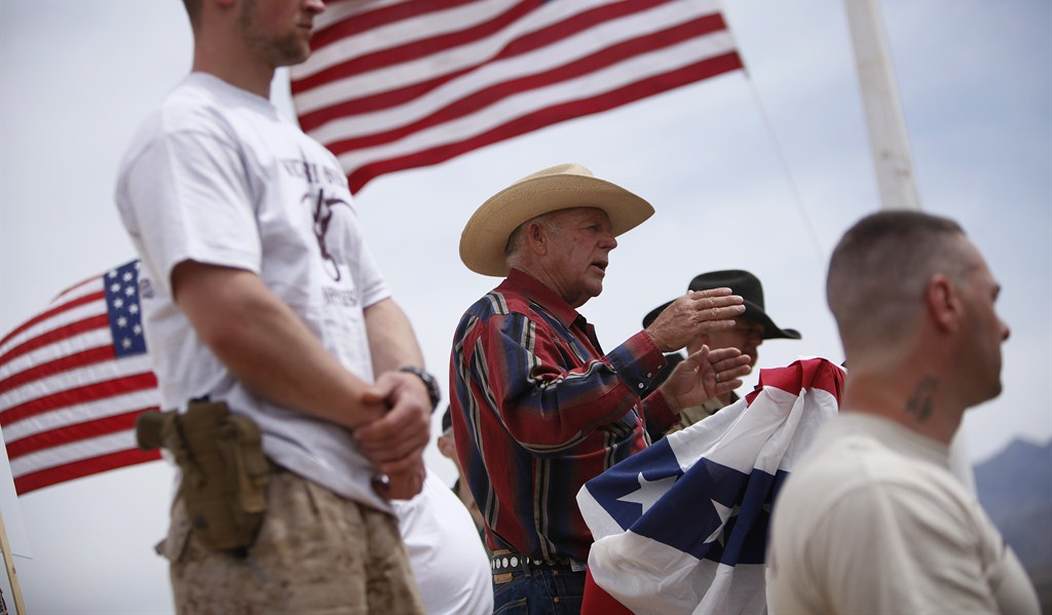This week, Nevada rancher Cliven Bundy, whose standoff with the federal government over taxes and land-use rights has captivated the nation, announced, "I don't believe I owe one penny to the United States government. I don't have a contract with the United States government." His legal case is problematic; the Bureau of Land Management certainly has jurisdiction over the federal lands on which his cattle graze. But his moral case is significantly stronger: paying taxes to a government that uses those tax dollars to restrict your activities on land your family has worked since the 19th century -- over a turtle, no less -- is sickening stuff. A government squeeze is a government squeeze.
Bundy's position on the federal government itself is unjustifiable. He stated in a recent interview: "I believe this is a sovereign state of Nevada. I abide by all of Nevada state laws. But I don't recognize the United States government as even existing." Obviously, the federal government does exist, and if the state of Nevada exists, it only does so because it was formed with the permission of the feds under the Constitution.
In fact, the Constitution of the of Nevada explicitly denies Bundy's interpretation of the law: "no power exists in the people of this or any other State of the Federal Union to dissolve their connection therewith or perform any act tending to impair, subvert, or resist the Supreme Authority of the government of the United States."
So Bundy's wrong on the legal and constitutional merits of his anti-federal case. But he does represent a growing problem in the United States: the problem of a seemly omnipotent federal government running roughshod over local rights.
As America's federal government grows, and as its unelected bureaucracy extends its reach over nearly every aspect of American life, more and more Americans will justifiably believe that their government no longer represents them. They will show up to Bundy Ranch-type standoffs believing that the government is not their government.
Recommended
When American colonists plotted revolt against the British government, they did so on the pretext that they were being taxed without representation. James Otis, the firebrand leader of the early anti-British movement, famously wrote: "no parts of His Majesty's dominions can be taxed without their consent ... every part has a right to be represented in the supreme or some subordinate legislature." But the simple reality was that the colonists likely would not have accepted representation in the Parliament as a justification for taxation; Congress stated in 1765 that the colonies "are not, and from their local Circumstances, cannot be, represented in the House of Commons of Great Britain." The impracticality of directing representatives thousands of miles away on complex legislation in a time without instant communication precluded the possibility of America becoming part of a British federation.
We have instant communication today, but a no more responsive government. Resistance to the Stamp Act killed its implementation in the United States but paved the way for war; resistance to the BLM's enforcement of federal law in the Bundy Ranch situation ended in federal withdrawal, but is merely the first step in a far-larger conflict. Like Bundy or not, his situation will not be the last of its kind, so long as the federal government insists on its ever-growing authority, and so long as states and localities refuse to stand up for their citizens.

























Join the conversation as a VIP Member